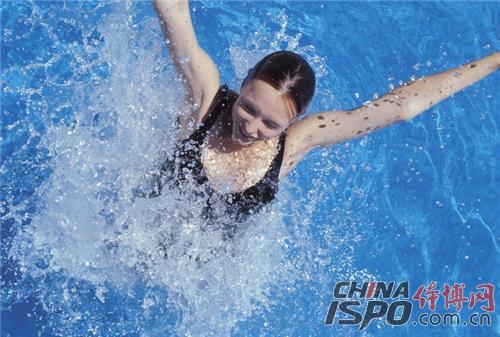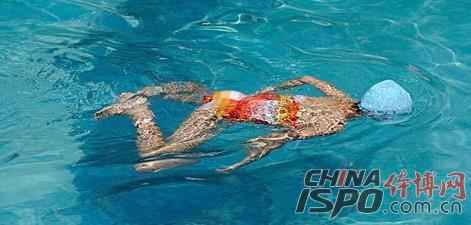

Female summer swimming benefits and taboos
When summer comes, what comes to mind? Most people think of swimming. Because of differences in the physical structure of men and women, the benefits that swimming brings to women and the things that women should pay attention to while swimming are different. What are the benefits of female swimming? What should women pay attention to when swimming? Today, Bo Bojun tells us what is good for female swimming. Let's go down and watch it together.

The benefits of swimming for women
Swimming can regulate women's endocrine, make the skin smooth and soft, so that the mood relaxed, and these factors may be appropriate at all times, "Christine", increase women's feelings of pleasure in sexual life. In various postures of swimming, in addition to freestyle, breaststroke and butterfly will benefit women more.
The different muscles in different swimming postures are different from each other, and the effects on the body are different. Because breaststroke has leg and leg movements, it exerts more exercise on female pelvic muscles and perineal muscles. The effect is more pronounced, and it can effectively improve abdominal muscle function.

Butterfly stroke requires body-like dolphin-like undulations. The power of the waist and abdomen is higher than the breaststroke requirement. Therefore, physically weak people generally cannot swim. On the other hand, if a person can swim in the butterfly, her strength is very strong.

Compared to other strokes, the butterfly stroke has more abdomen and hip motion and strength, and these parts are the most needed parts of sexual life. Therefore, multiple breaststroke and butterfly stroke can improve women's sexual function. Nor is it exaggerated.
In addition, if female pelvic muscles are relaxed, they are prone to uterine prolapse, rectal prolapse, bladder sagging and other diseases, and swimming, especially breaststroke and butterfly stroke, is precisely focused on strengthening the pelvic muscle strength, thereby fixing the uterus and other organs to a certain extent. Role can prevent prolapse. For women who have suffered from various prolapse diseases, swimming can also play an auxiliary role.
Under what circumstances women are not suitable for swimming
Love swimming in the summer, easy to infect skin diseases, digestive tract diseases and eye diseases, for women, the swimming pool is still a hotbed of gynecological diseases, easily lead to gynecological inflammation such as vaginitis. If you encounter unqualified water, there is even the risk of contracting sexually transmitted diseases. Therefore, when women swim, they must always pay attention to hygiene, strengthen their sense of self-protection, and take preventive measures.
Infectious symptoms should not be swimming
Patients suffering from vaginitis, acute cervicitis, acute pelvic inflammatory disease, urinary tract infection, it is best not to go swimming.
With gynecological diseases:
1. The bacteria in the pool water enters the vagina and it is easy to make the illness worse;
2. If there is disseminated gynecological inflammation, such as: fungal vaginitis, these diseases are easily transmitted to other people, and are generally easy to infect in swimming pool seats, towels, bathtubs, pool water and other places;
3, female patients suffering from non-transmitted gynecological inflammation, it is more likely to be transmitted by patients with disseminated gynecological inflammation.
When gynecological small uncomfortable should not swim
Due to various factors such as stress in life, work stress, irregular schedule, and decreased resistance, many urban women have more or less hidden gynecological inflammation. Some early inflammations are not uncomfortable and are often overlooked.
If women have early symptoms of gynecological inflammation, such as increased secretions, abnormal taste and color, they must never swim. Because, although the swimming pool water is sterilized, it cannot be aseptic. Disinfecting the incomplete pool water may make you worse.
Menstrual period and ovulation period should not swim
Some women still swim during menstruation, which is a big mistake. Although the vagina itself has a self-purification effect and natural defense function, but in the early menstruation, women's resistance is relatively weakened. If you swim in dirty waters at this time, water containing pathogenic microorganisms can enter the vagina, uterus, and fallopian tubes, causing gynecological diseases such as bacterial vaginitis and salpingitis.
Some women think that as long as put on a tampon, menstrual period can still swim. In fact, this method is not desirable. Because menstrual blood is a good medium for the propagation of pathogens, the uterus is still open during menstruation. After the tampon is soaked in water, the bacteria can easily enter the body through the cotton layer that absorbs menstrual blood, causing infection of the reproductive system. Due to cold water stimulation during menstruation, menstrual disorders can also occur.
Ovulation is not suitable for swimming like menstruation. During the ovulation period, especially in the first day and the day before the egg is excreted, the female body will greet the arrival of sperm in order to discharge the eggs. The secretion will be clearer and thinner, and the ability to resist bacteria will be weakened accordingly. If you enter the swimming pool at this time, it is easy. Causes vaginal infections and inflammation.
What should women pay attention to when swimming?
Summer swimming is refreshing and cool. Many adults and children love to swim in the swimming pool or at the beach. However, swimming must pay attention to safety and health awareness. The following small series introduces everyone to what women should pay attention to.
From the physiological point of view, the vagina is a part of the external and abdominal passages, it is connected to the cervix, and the lower end is open to the vulva. Normal and healthy women have self-purification and natural defenses. Because in normal physiological conditions, the anterior and posterior walls of the vagina are attached.
Vaginal epithelium is stratified squamous epithelium, and contains varying degrees of glycogen, glycogen in the role of vaginal bacteria into lactic acid, so that the vagina is acidic environment and prevent the growth and reproduction of pathogenic bacteria, play a role in disease prevention. If the above-mentioned prevention mechanism is destroyed, the germs can go downtime and cause various gynecological inflammatory diseases.
Therefore, female swimmers should pay attention to the following points according to their physiological characteristics:
1. Do not swim in contaminated water sources to prevent dirty water from entering the vagina and causing infection.
2, do not swim in the cold days, do not go to the water is particularly cool spring water, because women's resistance and adaptability is poor.
3. During the menstrual period, the defensive barriers of the vagina and uterus are weakened and the resistance is significantly reduced. This is not suitable for swimming during this period.
4, patients with vaginitis, acute cervicitis, acute pelvic inflammatory disease, urinary tract infection, it is best not to go swimming.
5. Take a bath with clean water as soon as possible after swimming to keep skin and vulva clean. If you feel unwell, you should go to the hospital for examination and treatment.
waterproof pet bed,elevated pet bed,pet sofa bed,pet bed cover
Ningbo XISXI E-commerce Co., Ltd , https://www.petspetskitty.com